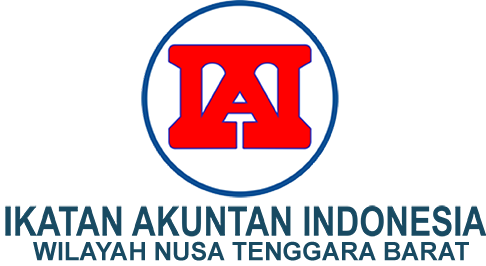THE ROLE OF ISLAMIC FINANCING IN SUPPORTING STATE FINANCE THROUGH COMMUNITY DRIVEN DEVELOPMENT SCHEME
DOI:
https://doi.org/10.29303/akurasi.v8i1.606Keywords:
behavior, budget, financing, waqfAbstract
Sharia-compliant financing instruments need to be given a broader scope to support the State Budget (APBN). This research aims to find the potential of intensifying the role of the waqf financing scheme in the state budget financing using the Community Driven Development (CDD) scheme by maximizing the role of social control. This study was carried out using a qualitative approach with triangulation, combining a literature review and interviews with key informants to examine the opportunities for Islamic finance to contribute to State Budget (APBN) financing by utilizing aspects of the Fogg Behavior Model in the behavior of Indonesian Muslims. The results of this research provide conclusions and recommendations that waqf has great potential to contribute to state budget financing with the use of the CDD design that can be utilized by the government, financial institutions, and the Islamic finance industry to optimize the role of Sharia-compliant financing in supporting the State Budget (APBN).
Downloads
References
Arifin, S. R., & Wisudanto. (2017). Crowdfunding Sebagai Alternatif Pembiayaan Pembangunan Infrastruktur. Prosiding Simposium II –UNIID 2017, 309–314.
Ascarya, A., Hosen, M. N., & Rahmawati, S. (2022). Designing simple productive waqf models for Indonesia. International Journal of Ethics and Systems, 38(3), 380–401. https://doi.org/10.1108/IJOES-07-2020-0101
Fogg, B. J. (2009). A Behavior Model for Persuasive Design. Proceedings of the 4th International Conference on Persuasive Technology. https://doi.org/10.1145/1541948.1541999
Hapsari, M. I., Thaker, M. A. B. M. T., Mohammed, M. O., & Duasa, J. (2022). The likelihood of using crowdfunding-Waqf model in Malaysia. International Journal of Ethics and Systems. https://doi.org/10.1108/IJOES-07-2021-0150
Mutakin, A. (2017). The Theory of Maqâshid Al Syarî’ah And The Relation With Istinbath Method. Kanun Jurnal Ilmu Hukum, 19(3), 547–570. http://www.jurnal.unsyiah.ac.id/kanun
Pratama, R. H., Azizah, H. N., Kuswendah, N. F., & Putri, O. E. (2020). Potential of Sharia finance in financing a budget deficit by adopting an electronic money transaction scheme in Indonesia. In Public Sector Accountants and Quantum Leap: How Far We Can Survive in Industrial Revolution 4.0? (pp. 110–114). Routledge.
Pratama, R. H., Qadri, R. A., & Khabibi, A. (n.d.). The “Nusantara” Cash-Waqf Model: Designing Alternative Scheme for Infrastructure Financing. Journal of Islamic Economics, 15(1). https://doi.org/10.15408/aiq.v15i1.32032
Putra, M. D. (2017). Maqasid Al Shari’ah Dalam Keuangan Islam. Iltizam Journal Of Shariah Economic Research, 1(1).
Qadri, R. A., Pratama, R. H., Khabibi, A., Pratama, R. S., & Author, C. (2024). Refining the Cash-Waqf Blended Finance Model for Infrastructure Development. Management And Accounting Review, 23(1), 279–305.
Samud. (2018). Maqashid Syari’ah Dalam Pembaharuan Hukum Ekonomi Islam. Mahkamah: Jurnal Kajian Hukum Islam, 3(1), 45–68.
Saputro, E. G., & Sidiq, S. (2020). The Role of Zakat, Infaq and Shadaqah (ZIS) in Reducing Poverty in Aceh Province. International Journal of Islamic Economics and Finance (IJIEF), 3(3). https://doi.org/10.18196/ijief.3234
Sara, J., Katz, T., Lee, K., Manou Savina, A., Vera, R., Quiton Daza, J., Nuñez, M., Brand, T., Maber, S., Brown, G., Pollard, R., Khan, S., Rehan, R., Minatullah, K., Narathius, A., & Lidonde, R. (1997). Making Rural Water Supply Sustainable: Report on the Impact of Project Rules (UNDP-World Bank Water Sanitation Program).
Weda, I. B. K. (2013). Korupsi Dalam Patologi Sosial: Sebab, Akibat Dan Penanganannya Untuk Pembangunan Di Indonesia. Jurnal Advokasi, Vol. 3, No. 2, 2013., 3(2), 119–133.
Yasni, R., & Erlanda, A. R. R. (2020). Challenges of Zakat Integration as Source of State Revenue. International Journal of Islamic Economics and Finance (IJIEF), 3(3). https://doi.org/10.18196/ijief.3238
Yonimurwanto, N., & Pratama, R. H. (2017). Instrumen Pembiayaan Defisit Dalam Mendukung Penerimaan Pajak Untuk Pembangunan. Jurnal Pajak Indonesia, 1(2), 38–46.
Downloads
Published
How to Cite
Issue
Section
License
Copyright (c) 2025 Raditya Hendra Pratama, Wisnu Cahya Adi Wibowo

This work is licensed under a Creative Commons Attribution-ShareAlike 4.0 International License.
Authors who publish in Akurasi: Jurnal Studi Akuntansi dan Keuangan agree to the following terms:
- Authors retain the copyright of their articles.
- Authors grant Akurasi: Jurnal Studi Akuntansi dan Keuangan the right of first publication.
- Articles are licensed under the Creative Commons Attribution-ShareAlike 4.0 International License (CC BY-SA 4.0).
- This license allows anyone to copy, distribute, display, and adapt the articles for any purpose, including commercial use, as long as proper credit is given to the author(s) and the source, and derivative works are distributed under the same license.
- All published articles are open access and may be used for educational, research, and scientific purposes.







